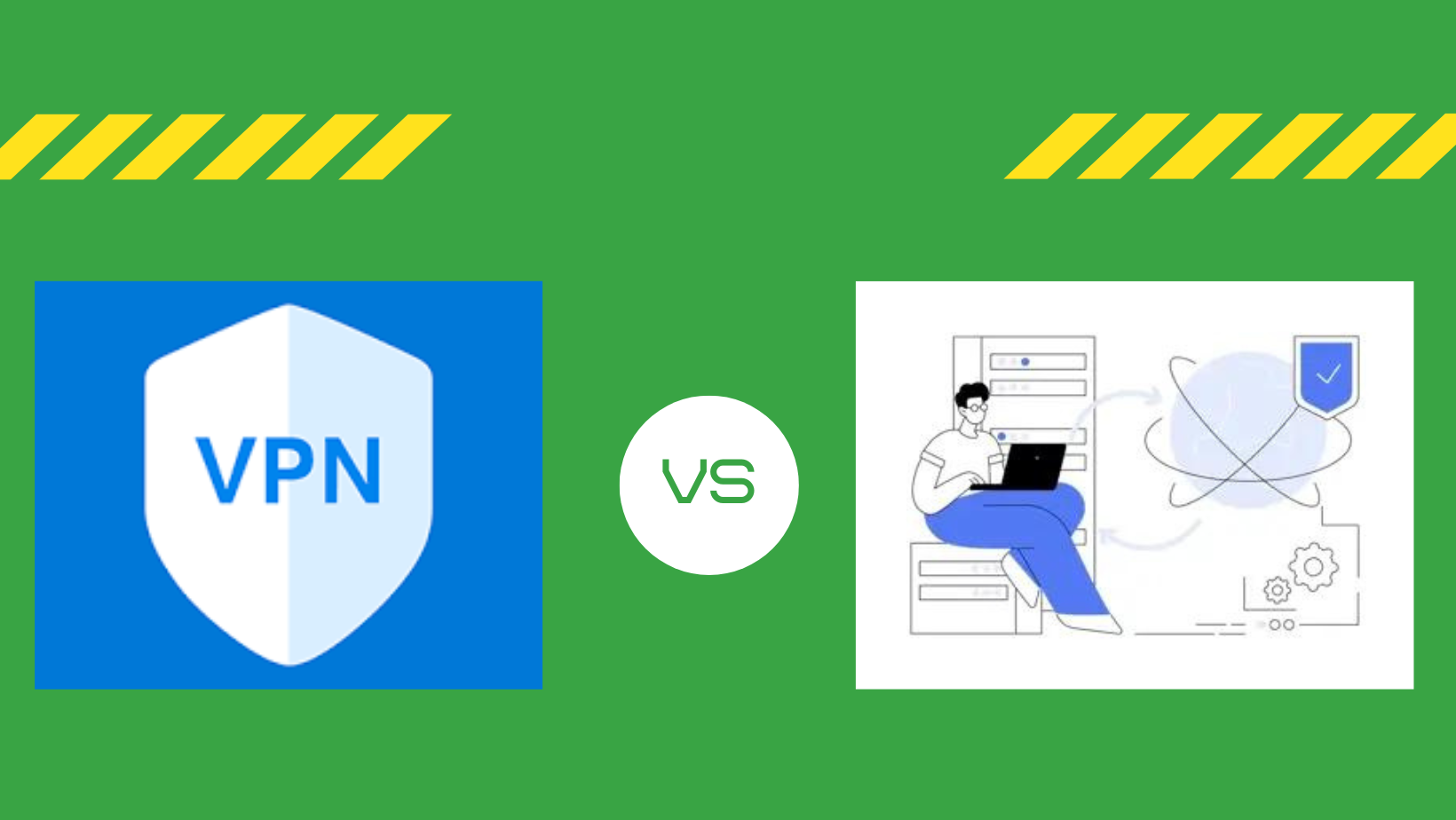VPN vs Proxy - Choosing Your Shield

In the landscape of technology, where innovation brings forth a multitude of IT services, the distinction between various offerings can often leave businesses perplexed. One such conundrum lies in the realm of VPNs and proxy servers. Though they share commonalities, these services possess distinct characteristics.
This comprehensive comparison elucidates the disparities between VPNs and proxy servers, aiding your decision-making process.
What is a VPN?
A Virtual Private Network (VPN) establishes a secure connection to an external network through the Internet. The versatility of VPNs extends to scenarios such as remote network access, linking remote offices, and safeguarding home-based employees. It can serve to connect to a company network while working remotely, bridge disjointed networks, or fortify your network's security.
Advantages of VPNs
- Privacy and Security: When connected to the internet through a reliable VPN, your data undergoes encryption, thwarting third-party surveillance and identification attempts.
- Global IP Masking: VPNs can provide an IP address from another country, making it difficult for authorities to trace users engaging in restricted online activities.
- Remote Access: For travelers and remote workers, VPNs offer seamless access to company networks from anywhere, enhancing data security.
- Counter Geo-restrictions: VPNs assist in bypassing website restrictions imposed by certain countries.
Drawbacks of VPNs
- Internet Speed: VPN usage might result in slower internet speeds, particularly during media streaming, due to rerouting all traffic through VPN servers.
- Server Overload: Some VPN providers may struggle with heavy traffic, leading to server overloads and prolonged wait times.
- Quality Variability: Not all VPN services offer equal security levels; opting for subpar services may compromise your privacy and security.
What is a proxy?
A proxy server acts as an intermediary for client requests directed towards other servers. Its usage ranges from filtering malicious websites to shielding computers from online threats. By changing your IP address, proxy servers grant access to geo-blocked content and websites.
Advantages of Proxy Servers
- Bypass Censorship: Proxy servers are potent tools for overcoming censorship and geo-restrictions, allowing access to blocked content.
- Privacy Enhancement: Proxy servers cloak your IP address, deterring third-party tracking, identification, and device compromise.
- Limited Visibility: While less secure than VPNs, proxy connections can deter hackers and safeguard against certain cyber threats.
- Anonymity: High anonymity proxies ensure utmost privacy by obscuring your identity and location.
Drawbacks of Proxy Servers
- Malicious Access: Just as they enable access to restricted content, proxies can also be employed for accessing malicious websites.
- Limited Encryption: Unlike VPNs, proxy servers lack end-to-end encryption, leaving transmitted data vulnerable to interception.
- IP Tracing: Your IP address remains linked to the proxy owner's server, potentially revealing your identity and location.
Choosing Between VPN and Proxy
The challenge of distinguishing between VPNs and proxy servers lies in their overlapping features. Both serve to bolster online security and privacy, along with bypassing censorship.
The choice between the two hinges on the following factors:
- Privacy and Security: VPNs offer robust encryption, while proxy servers require the installation of software on your device, giving you more control over your internet connection.
- Speed: VPNs can slightly slow down your connection, whereas proxy servers are less likely to cause noticeable speed reductions.
- Ease of Use: Proxies necessitate software installation, while VPNs are typically easier to use across various devices.
- Cost: VPNs may be pricier due to subscription charges, but their comprehensive protection justifies the investment.
Conclusion
VPNs and proxy servers are essential tools for safeguarding online security, each serving unique purposes with its own set of advantages and disadvantages. While proxy servers excel at providing temporary protection and access to blocked content, VPNs offer comprehensive encryption, making them ideal for secure, long-term online activity. Remember, the digital realm presents risks to your privacy and security, making the choice between VPNs and proxy servers a crucial aspect of your online strategy.


